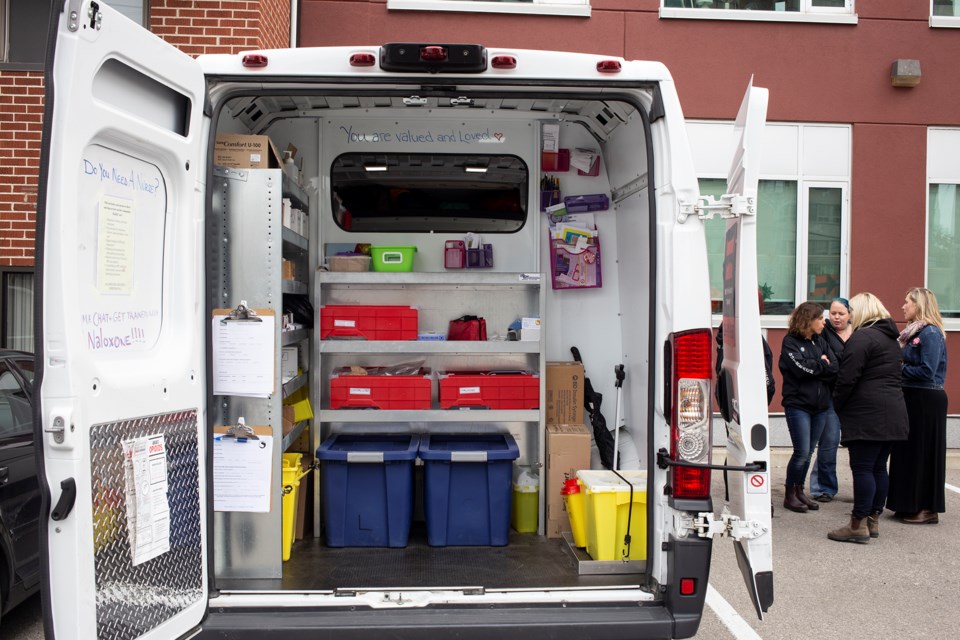Without funding from the City of Guelph in 2024, Guelph residents accessing the Sanguen Health Centre's Guelph-Wellington Community Health Van could be left in the cold starting in March.
Earlier this month, the county's social service committee allocated approximately $90,000 for the van's harm reduction services across Wellington County to sustain funding until September 2024, after which staff recommend ongoing annualized funding for "increased services that better align with social services" to commerce in January 2025.
However, while Guelph was also asked to contribute $90,000 during a special budget meeting Nov. 15, the requested funds were noticeably absent from the city's finalized 2024 budget when it was announced yesterday.
The total annual cost to operate the Guelph-Wellington Community Health Van is $271,898, with 80 per cent funded by a $239,968 Health Canada grant which ends on March 31, 2024, in addition to a $25,000 grant provided annually by TD Bank until 2025 and $11,000 from the City of Guelph.
"This was not the decision we were hoping for and we are processing it today together as a team," said director of program development at Sanguen Health Centre Lindsay Sprague, over email on Thursday. "We will be working hard over the next few months to ensure we can sustain our services in the City of Guelph. "
According to social services committee chair, County Coun. David Anderson the five Guelph locations the group currently visits could lose their services altogether without a new source of funding.
"It's too bad because when you think about it, there's a lot of people in Guelph who need (these services) as much as people in Wellington County," said Anderson. "So if that's Guelph's decision that's fine but...I would hope that Guelph might revisit this decision, I would hope."
Performing 4,302 interventions between July and September, the van currently visits each of its serviced municipalities every Tuesday and Wednesday on a bi-weekly basis, making two stops a day for two hours each, before returning to Guelph, where it provides off-duty service from 5 p.m. to 9 p.m.
On average, the van serves 100 individuals a week in Guelph while in Wellington County, 55 and 45 individuals are served on a weekly and bi-weekly basis.
 "Their service is preventing people from going to our hospitals and jamming up emergency," said Anderson. "(We chose) to make an investment ahead of time, (because it's) a lot less than what you're going to pay in the end."
"Their service is preventing people from going to our hospitals and jamming up emergency," said Anderson. "(We chose) to make an investment ahead of time, (because it's) a lot less than what you're going to pay in the end."
While Sprague can't confirm what future services will look like at this time. Sprague said the group hopes to continue the van's work in Guelph- meeting harm reduction needs, providing medical care for people unable to access traditional services and helping residents access "essential" peer and social support.
The group also maintained that they welcome opportunities to meet with city staff to discuss opportunities for collaboration and advocacy around their services and the community members they support.
"Our services help to reduce risk of injury, disease and death and allow people to stay healthier as they navigate housing and social systems," said Sprague. "We hope to continue this work in the short and long term, as well as work closely with our partners who also serve the community."
Isabel Buckmaster is the Local Journalism Initiative reporter for GuelphToday. LJI is a federally-funded program.


